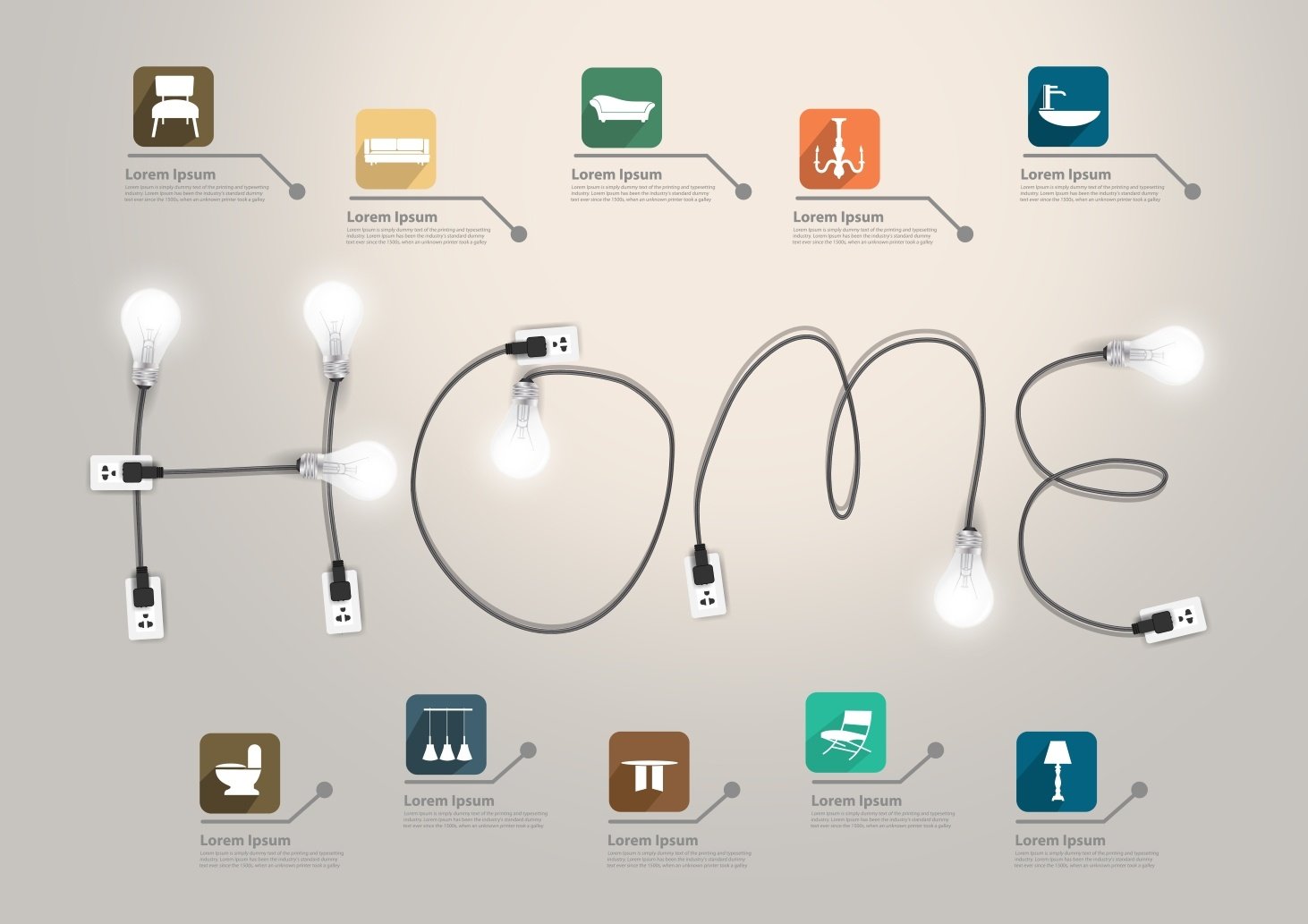Saving Energy in the Household

Extra unnecessary energy use can hit your electric bill hard. Follow these simple tips to save big around the house.
Refrigerator and Freezer
When it comes to these large appliances, there are many simple ways to cut down on energy use and save on bills. Make sure your cooling devices are in a place as cool as possible, so away from heat sources like radiators, direct sunlight, or other big energy consuming devices. Also make sure these cooling devices are atlas two inches away from the wall so air can circulate more efficiently.
You can also increase the temperature of your devices; 7°C (45°F) is cool enough for the fridge and -18°C (0°F) is great for the freezer. One of the best things you can do is limit the amount of time the doors are open to your fridge or freezer, a fun project may be to label items and organize your shelves so everything is easily accessible. If there is a large amount of unused space in your fridge or freezer, fill it with padding such as polystyrene or just a blanket.
Lights
The first step is to find the most effective places for your lights and light switches so you can limit the amount you have; the less lights you have the less you’ll spend! If you’re up for it, paint your rooms a bright color. More light is reflected by brighter walls so you’ll need less light to make your room bright.
Replacing your lightbulbs can be a hassle, but it is very economical if they burn for more than half an hour a day. Replace your regular light bulbs with fluorescent bulbs if this is the case; use a LED (Light Emitting Diode) or CFL (Compact Fluorescent) bulbs. Another way to save is to install and use dimmer switches at less-than full brightness or incandescent lamps and other types that are specifically labeled as suitable for use with a dimmer.
Stove/Oven
When it comes to the stove, using pots and pans with a diameter as small as possible will save you tons. Put these on hobs that fit them or are smaller. Try to keep pots closed for as long as possible; when you cook without a lid, you lose about 2/3 of the energy. When you are cooking for a long time, try to use a pressure cooker, and try to boil water with an electric kettle instead of on the stove. If you are looking to buy a new stove, look for a gas stove or an induction cooker.
As for the oven, avoid using it when you can do the same job with a toaster or microwave oven. Do not preheat your oven unless absolutely necessary. Bake with circulating air, and get the most use of your oven if it’s already hot (bake a cake, make a casserole, just get it all done). If the oven has already reached its final temperature, turn it off 10 minutes before your food is ready, and try not to keep the oven door open for too long.
Dishwasher/Washing Machine and Dryer
When you run a load in the dishwasher or washing machine, make sure they’re as full as possible to avoid wasting water and energy with multiple small loads. In the washing machine, use cold water instead of hot water and purchase a cold water-specific detergent so your clothes come out just as clean as they would with hot water. You can reduce the water temperature in your dishwasher as well. In both appliances, make sure the energy and/or water saving modes are switched on if given the option. If you live in a warmer climate, try drying your wet clothes on a laundry line or outside in general. If you don’t have the means to do this, fill the dryer so it is reasonably full but not so full that air cannot circulate, and use the mode “iron-dry” (this is the most energy efficient option).
Heating and Cooling
When you can, avoid cooling completely, you need three times more energy per degree to cool a room than to heat it. Ventilate your home during the night or early in the morning to store coolness in for the day and keep it in by keeping your windows and doors closed during the day. When you can, use a fan instead of an air conditioner, or in combination with your AC set at 78 degrees or higher. When you heat your home, avoid heating with electric energy. Although it is more efficient, it is often the most costly option. You can save money on electricity by using another source such as natural gas, heating oil, or propane.
A Few Quick Reminders That Will Save You
- Turn off the lights when you leave a room.
- Turn off all household appliances such as TV’s and computers when not in use.
- Set your thermostat properly. Many homes are empty during the majority of the day with everyone at work or school so set the thermostat higher or turn it off at these times.
- Seal your windows and doors to keep in cool or warm air and vice versa.


